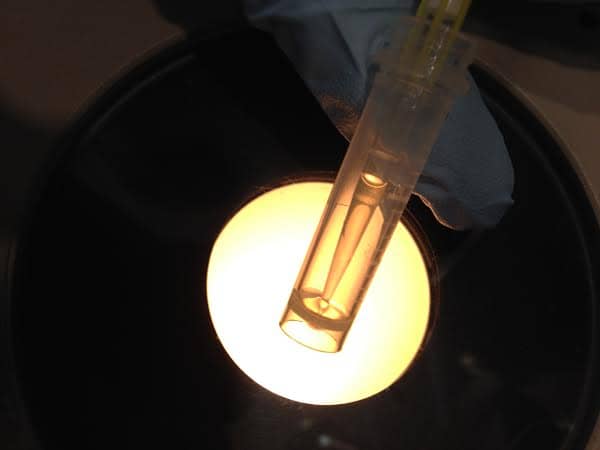The PancraGen test from Interpace Diagnostics, Parsippany, NJ, utilizes the company’s PathFinderTG platform, which assesses multiple tumor suppressor and oncogene DNA abnormalities. PancraGen integrates this DNA analysis with clinical features of pancreatic cysts to stratify patients for risk of pancreatic adenocarcinoma. All patients with pancreatic cysts, except those with clear cytological malignancy, are candidates for testing with PancraGen.
In performing the test, a pipette tip is placed into a screw cap vial with a representative sample of a patient’s pancreatic cyst fluid. The tip aspirates a small aliquot of the fluid, which is then submitted and tested by detailed mutational analysis in an advanced laboratory (see photo).
Among its attributes, PathFinderTG is specifically designed to interrogate minute biopsy specimens, overcome limitations related to exposure to chemicals typically used in sample fixation, and enable the analysis of both cellular and cell-free DNA. PancraGen and related PathFinderTG applications have been validated for use in clinical testing to resolve indeterminate diagnoses, improve detection of cancer, and define individual patient risk for cancer development. PancraGen clinical testing has been approved for third-party reimbursement by Medicare, Blue Cross Blue Shield, and other private health plans. For more information, visit Interpace Diagnostics.





